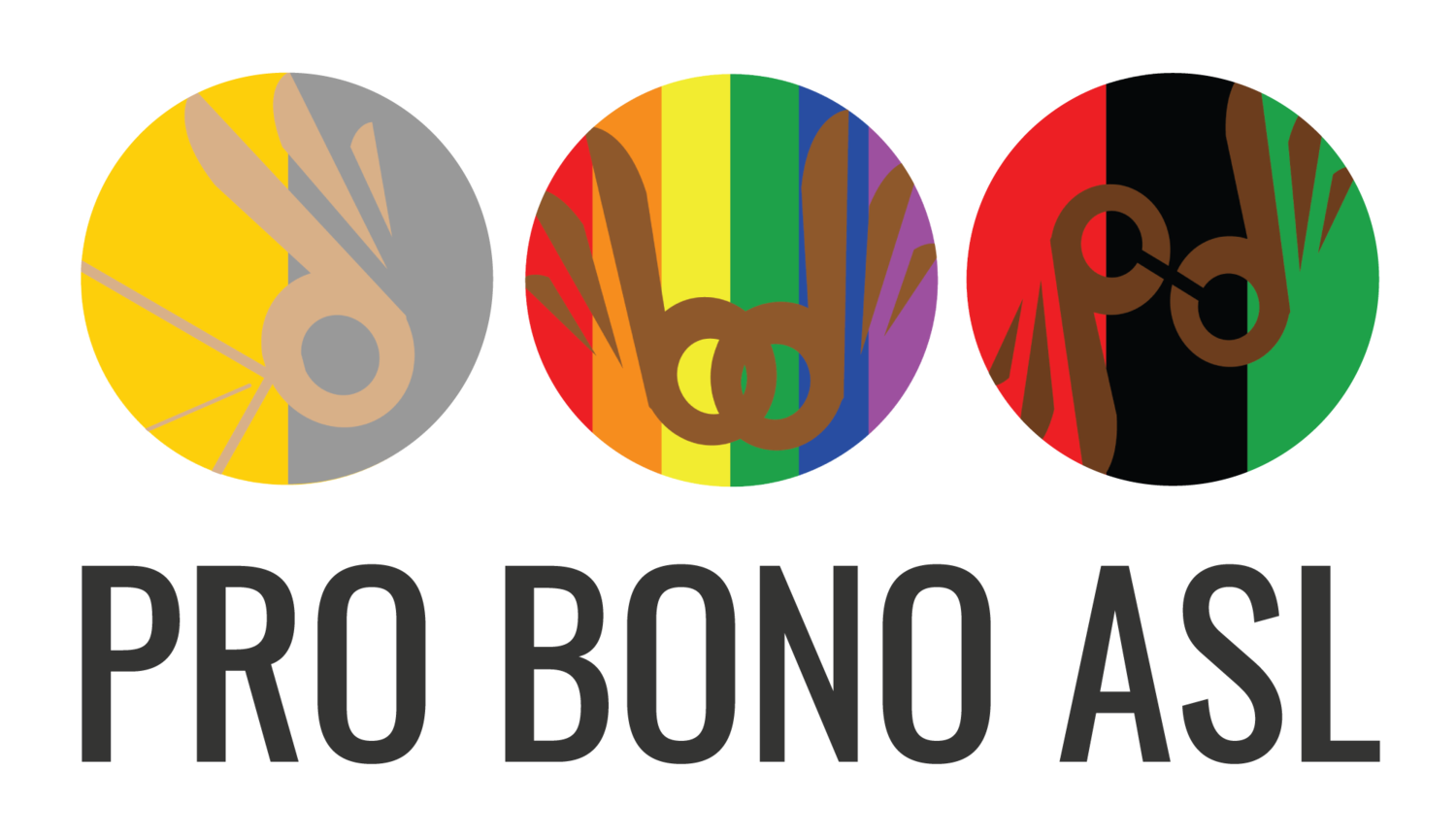
Cultural Authenticity
“Interpreters possess the professional skills and knowledge required for the specific interpreting situation.”
-Registry of Interpreters for the Deaf, 2005.
Take a look at these pictures
Looking at the topic and panelists of the event what do we notice?
We are able to identify that this is a Black hair affinity space. But what sets the images above apart are the sign language interpreters.
Both individuals are professional sign language interpreters, who have taken the same training and graduated from the same college. However, Interpreter 1 has the linguistic familiarity, cultural knowledge, and lived experience. None of which can be formally taught. Interpreter 2 is a white man…who an agency placed in this job without a second thought or consideration for the content of the presentation.
But isn’t access just access?
Yes and no!
Interpreting requires an innate knowledge of the subject materials, understanding of both source and target languages(I.E. ASL and English, English to ASL) to effectively interpret.
It is an outdated belief that simply placing anyone, any “warm body,” equals access. Sure, there is a sign language interpreter who is signing, but the content is not accessible. Following the example above, placing interpreter 2 in a Black hair affinity space discussing Black hair experiences would be a barrier to access.
While many interpreting agencies understand this very basic concept of having a ‘knowledge base’ in order to interpret, what they fail to understand is…
CULTURE=KNOWLEDGE
There is some content in life that you cannot study and know intimately. To return to our example, unless you have the lived experience growing up with Black hair, it is something that you would never be able to develop the knowledge base in order to interpret effectively.
It is almost always the case that sign language is NOT a 1:1 English to Sign Language equivalent. Specialized and culturally specific terms can be greatly skewed and often are.
Questions to ask yourself as you request interpreters:
Who is my audience?
Who is/are my speaker(s)?
What is the subject matter?
Does representation matter?
What potential harm could be caused by placing an interpreter who is not culturally connected to the assignment?
In this situation, the Deaf consumer is a Black Deaf femme individual who has requested sign language interpretation services. Using this information, take a moment to consider the questions above. Is this the appropriate team make-up for this consumer?
Why does cultural authenticity or competency matter?
Cultural competency matters because CULTURE=KNOWLEDGE. We must take every detail of an assignment into consideration when staffing sign language interpreters. Our interpretation has the potential to bridge communication gaps OR create chasms of separation. Take it upon yourself to always prioritize access, and remember ‘representation is access,’ interpreting team make-up is vital.
So, if representation is access, how do I request culturally competent interpreters?
When putting a request in for interpreters - use BIPOC run agencies, or make specific requests to white run agencies. Keep in mind, those white agencies might only seek to fill the request citing “we don’t know the race of our Independent Contractors” or “we gave the assignment to whomever was first available.”






